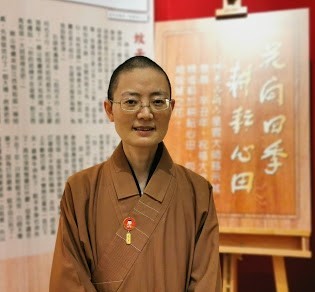
Speaker: Ven. Zhi Guan
Fo Guang Shan Hong Kong Vihara
Auspicious greetings to Dharma friends around the world, welcome to a new episode of Fo Guang Shan English Dharma Services. My name is Zhi Guan, from Fo Guang Shan Hong Kong Vihara.
Today I would like to share Venerable Master Hsing Yun’s article on about Remorse, which you can find in the first volume of Buddha-Dharma: Pure and Simple, from page 87 to 89.
In this article, Venerable Master put the following four points together, bringing us a bright and positive way of thinking about remorse:
- For what kinds of reasons should we be remorseful and ashamed?
- How does Buddhist Sutras talk about remorse as a great virtue?
- What is the meaning of sense of remorse?
- How do we practice it in our daily life?
First, for what kinds of reasons should we be remorseful and ashamed?
We may ask ourselves, have I had a sense of remorse and shame for certain reasons? The answer must be “yes”. There are a lot of reasons, as Venerable Master mentioned in the first paragraph, which are:
- Feeling ashamed when one’s knowledge, aspiration, loving kindness, and compassion are lacking.
- Apology towards others, such as parents and friends, when we failed them.
- Feeling ashamed of our unwholesome behavior and thoughts, and so on.
But most importantly, all the above reasons for being remorseful and ashamed is also a reflection of our self-awareness to repent and remedy.
Here is a story to share with you.

Once there was a thief who decided to steal from a temple. When he snuck into temple in the middle of the night, everything was dark and silent, and even the lamp in the shrine is slowly dying out.
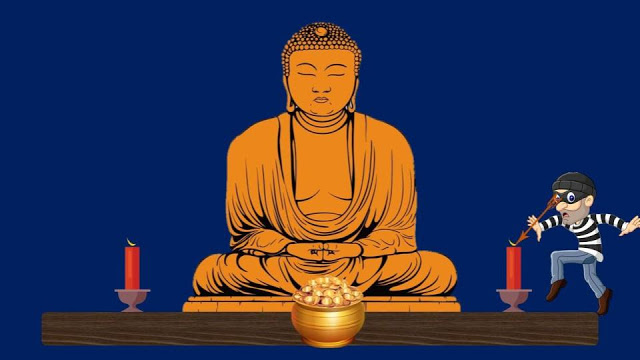
The thief took an arrow from his bag and straightened the lamp wick, and lamp flickered and grew bright again.
The thief looked around him and saw the magnificent Buddha statue before him. He suddenly felt ashamed.
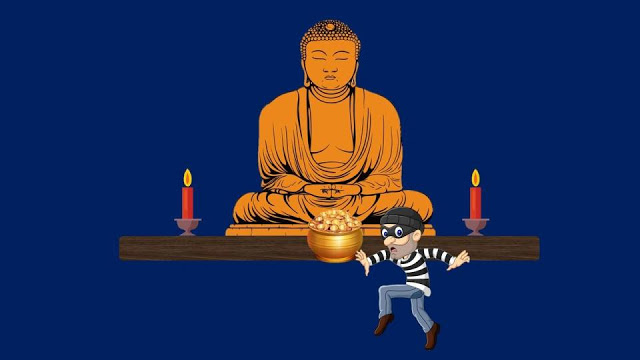
“All of the donations are sincerely given by devotees. How can I steal their money?”
The thief repented his mistake and vowed to never steal again. Because of his remorse, the thief built the causes and conditions for him to cultivate, and after 91 kalpas of practice, he was reborn as Sakyamuni Buddha’s disciple, Aniruddha, who was known as the foremost in supernatural vision.
Now back to our second point, how does Classics and Buddhist Sutras say about remorse, as a great virtue?
Venerable Master mentioned that, since mistakes in action and speech are unavoidable in our life, the attitude to face and deal with this emotion is very important. Here is how the Classics and Buddhist Sutras talk about the virtue of sense of remorse:
In Confucianism, there is saying that, “To err is human, to correct a mistake is the greatest good.” So the teaching of the Four Moral Standards and Eight Virtues serve as a reminder to never forget a sense of remorse.
The Buddhist Masters said: Be ashamed for not knowing, for not being able, for not knowing how, for not being pure.
The Buddha teaches us, “Being clothed with a sense of shame is the foremost adornment.” (in the Sutra of the Bequeathed Teaching of The Buddha)
About the meanings of sense of remorse, Venerable Master Hsing Yun put words together with an example of taking five precepts, to encourage us that: with remorse, we know to work vigorously, and we will strive for mastery, as well as learn to admit our faults, which will enhance our moral character.
For example, someone who had taken five precepts, but violated by drinking alcohol. With the sense of remorse, one would not dare drink in front of others, and would feel remorseful afterwards. This is how the sense of shame work as a reminder of moral guideline.
And the most important is, with the sense of remorse, how do we apply or practice to purify, improve, and elevate our life, the body and mind? Venerable Master Hsing Yun has given us some guidelines in the last paragraph.
First of all, take examples from eminent masters who strove for self-improvement and took responsibility for their mistakes. This is also the first creed of the Four Fundamental Creeds of Practice for entering the Path of the Sages. The Buddha taught that, “Be acquainted with good advisors, listen to their teaching, then think and follow the right Way.” Only through this procedure of practice, can we built up our confidence and acquire the ocean of wisdom surely, like all sages. In other words, with someone of an example in our mind, we surely will have that one person to look up to and learn from, and it is also a reminder kept in mind.
And the second, if we accept and understand the law of cause and effect, and the law of Karma, we shall cultivate a remorseful conscience so to not to offend or violate others, but to cultivate good affinities through our humility and humbleness.
Furthermore, Venerable Master Hsing Yun emphasized that, to cultivate a sense of remorse, one will be able to correct past wrongdoings, understand to respect others, thus eliminating negative karma and progressing towards liberation.
In his autobiography of Buddhist Affinities Across a Hundred Years, Venerable Master Hsing Yun wrote a couple of articles about his confessions, and honestly confessed what he had done in the past: not taking good care of parents and family members, not paying reward back to all the teachers and seniors for their devoted teaching, and not having attained certain achievement on cultivation. Since there is a list of things that are not satisfactory, Ven. Master Hsing Yun revealed his confessions and made great vow of transferring all his aspirations and expectations to present and future. He also encouraged us that, we should put our mind of remorse and appreciation together to deal with our life, to purify our mind, and especially build up right view on remorse and repentance.
To conclude, remorse is the utmost virtue in this world. As a Buddhist practitioner, let us take remorse as the fundamental step in cultivating our conduct in daily interpersonal situations. Just as Venerable Master said, Remorse and repentance isn’t just a one-time confession, but a lifetime of reflection. It is not a catchphrase that make ourselves look good, but rather a reminder to diligently eliminate our inner greed, hatred, and ignorance.This reminds us that, true remorse and repentance is the inner ability to reflect and be self-aware.
Thank you for tuning in to this episode! Don’t forget to subscribe to this channel for more Dharma wisdom. May you find joy and inspiration in this Dharma talk. Omitofo.
Buddha-Dharma: Pure and Simple vols. 1, 2, 3
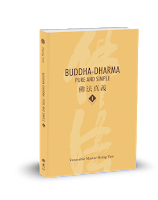
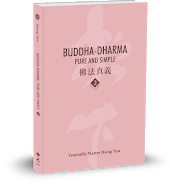
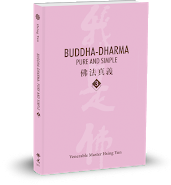
In today’s Buddhist sphere, numerous claims have been made on what the Buddha has taught. However, were they truly spoken by the Buddha? The Buddha-Dharma: Pure and Simple series is an exploration of over 300 topics, where Venerable Master Hsing Yun clarifies the Buddha’s teachings in a way that is accessible and relevant to modern readers. Erroneous Buddhist views should be corrected, the true meaning of the Dharma must be preserved in order to hold true to the original intents of the Buddha.
Published by: Fo Guang Shan Institute of Humanistic Buddhism
Read it here

